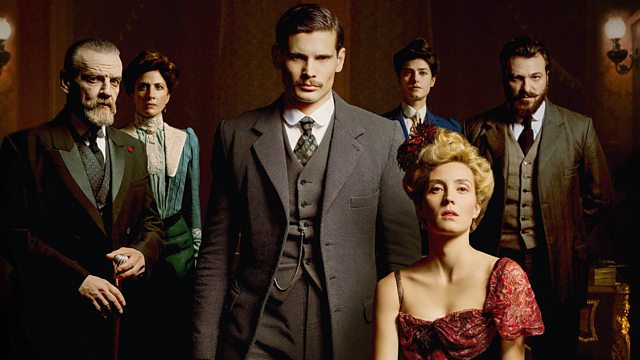Paris Police, 1900 (S1: E7)
My reviews of Episodes 1, 3, and 5 have revolved around contrasts between this French television show and how I imagine such material would be handled on American (broadcast) television.
My colleague, Edward Brown, has described the show as “CSI meets Sherlock Holmes.” I’ve likened it more to the crime procedural because early episodes focused more on the Berger murder case than the espionage elements. I’ve also compared it to American police shows (The Wire, Blue Bloods, NYPD Blue) because it is interested in the organizational operation of the police and not just the police as the work setting for a protagonist. In other words, it is about the job as much, if not more, as it is about the person working it.
But Episode 7 reminded me that this is a drama with a historical setting, and thinking about it in those terms helped me articulate another difference that I felt but had not yet been able to describe.
There are essentially two conventions for portraying history in American media: the distant mirror and the origin story. For an example of the first, I think of something like Game of Thrones (which, while fantasy, is informed by its creator’s love of history). The details may be different but within the different structures (worlds) human behavior is recognizable. These people are like us even if the world they inhabit is vastly different.
For the second, I think of something like Mrs. America or Masters of Sex. In these types of dramas, the essential differences between the past and present are highlighted, not glassed over. They also seem more interested, though, in how the past led to the present rather than in simply depicting the past on its own terms. They are interested in particular historical settings because they seem pivotal.
I confess for much of Paris Police 1900, I have been trying in vain to fit the show into one of these two categories, but it has thwarted my efforts. That’s not a bad thing, necessarily, but it has slowed my understanding or appreciation for what else it might be doing.
Episode 7, for example, builds toward a climactic confrontation between a mob manipulated and manufactured by the Antisemites and the understaffed police force. As tempting as it is to try to draw parallels between this event and more recent standoffs between fascist mobs and lawful police (distant mirror), the series avoids making such parallels the point. Parallels to contemporary history might be implicit, but they are seldom invited. The actual confrontation itself is largely rendered offscreen, and its results are hardly transformative.
But neither is the film about the birth of the modern police. There may be a tantalizing exchange between Lépine and Puybaraud about whether people will ever use a telephone to report crimes to the police, but such period details are rarely, if ever, imbued with a sense of foreshadowing about how significant the changes are.
So what then is the show’s use of history about? Is there a built-in message about this time period or is it merely a setting for a conventional drama? This is where I question the Sherlock Holmes comparison. Most detective fiction is about exceptional individuals. The sleuth cracks the case because of specialized and extensive knowledge, superhuman attention to detail, or insight derived from reason. But the police work in this series is mundane. It is something of a running joke in my household that the traditional hero — Jouin — gets beat up in nearly every episode. He is not, as the meme says, a man with a “special set of skills,” just a man who places his body and his skills on the side of the right as he sees it.
Perhaps the show’s historical setting frees us of enough of the genre expectations that we can see anew that which we have seen many times. The literary criticism word for this is “defamiliarization,” which Russian formalists argued was the primary function of all art. Paris Police 1900 shows us what we’ve seen before, but it tweaks enough of the details to make it seem strange and new rather than familiar. In doing so, it prompts us to think more actively about its characters and situations rather than simply accepting them uncritically the way we might do so if our brains were on autopilot — as they usually are when we are watching something more formulaic.

